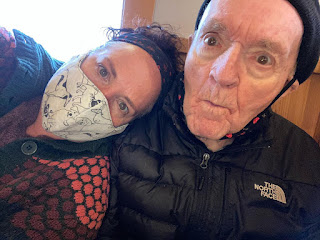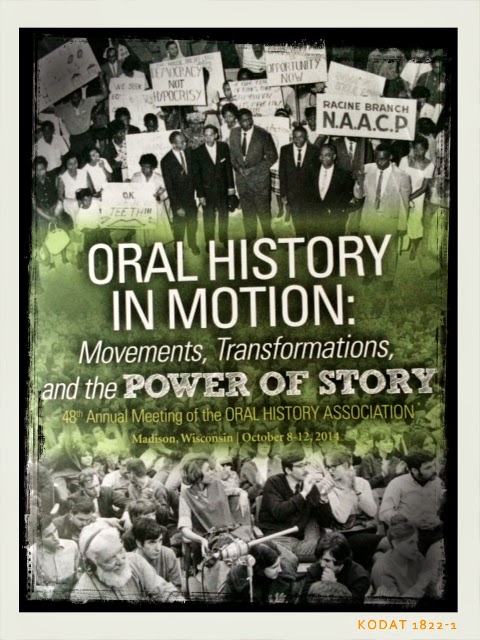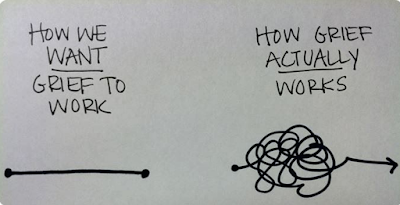On Alzheimers, Irish singalongs and History
My mom loved St. Patrick's Day. The retinue of "deedle-lee-dee" gave her great joy. At some point in the week leading up to the holiday, there would be singing in person or over the phone, depending on where I lived. Her favorite song was "McNamara's Band" and she would giggle every time "Henessee Tennessee tootles the flute" was sung in the chorus. She also loved that classic of Irish America, which has grown on me over the years, "If you're Irish come into the parlour." (In this version by the Irish Rovers, the two songs are played together.) I hated it when I was younger for the clippy-clappiness of it. Now, older and having lost my mom, there is something about the "big songs" of the Irish American songbook that cheer and ground me. I miss her "welcome mat" and the song, for a moment, returns it to me.
When I spend time with my father these days, it is in a car. We go for drives on Sundays a couple times a month. At first, his aging brain recognized songs and he could sing every word even when he called me "the nice lady" and looked blankly if I tried to engage in conversation about most things. So I made playlists. Irish tunes. Bolcolm and Morris songs that he and my mother adored. Church hymns like "On Eagle's Wings" and "Now Thank We All Our God." We would sing and sing and sing.
And then COVID came and that ended the visits for awhile, and it ended the singing until just this week. He has been vaccinated and that made singing safe (from my risk assessment perspective, at least.) When he got in the car yesterday, I put on Molly Malone, a longtime favorite of his. He would accompany my sister on her guitar and his rich, deep voice never wavered. Not only did he not seem to recognize the song, he grew agitated. I changed it to "When Irish Eyes Are Smiling." Same thing. The music wasn't doing what it had always done -- provide respite and familiarity in a world that is often confusing.
On a whim, I stopped at a stop sign and found a playlist of Irish tunes, but this one was all instrumentals. Magic! McNamara's Band came on. Dad started clapping, tapping and grinning. He even made his quintessential sound of pleasure, "AHHHH. AhaHaaa." The joie de vivre that I have always associated with him was back. It was the same through the entire playlist. The tunes remain alive somewhere in his heart and brain -- it's just now the words have become static that gets in the way of his ability to appreciate them. Disconnect.
I thought about this on the drive home. Watching someone you know well accomodate themselves to a disease that reorders brain function can be really painful --- as many have said, it is a little like childhood in reverse, with skills and abilities incrementally decreasing instead of increasing. Since I think so much about memory and history and the traces and remnants the living leave behind when they die, these encounters are equal parts painful and captivating.
I find myself fascinated right now, like so many historians are, with the challenge of holding onto essences that are performed, experienced, negotiated between people -- and never written down. I also think a lot about all the tiktoks and tweets and Facebook posts and wonder if historians of the future will care about them at all. Or will they experience them the way my father experiences words to songs now --- extraneous at best and possibly even obstacles to connection and understanding?
Someone else, someone who didn't know my dad, would have simply turned the music off. They wouldn't have kept trying. Yesterday,
in one of his moments of lucidity, he looked straight at me and said,
"I don't know what to make of it, but I sometimes feel very out of
place." Me, I want the songs to be anchors. That's why I tried different things to see if he might connect.
What if, after all, history is only a productive engagement with connection? What if what used to be referred to as history was really (á la Hayden White) just the product of a collective agreement -- or something decided for us or on our behalf -- about what connected us to the past, about what should matter to us all?
What happens when we have to negotiate as a society and nation the fact that my song is your static and vice versa? What is history in the absence of even the premise of connection? As a nation, I think we are in the processing of finding out.










Comments
Post a Comment